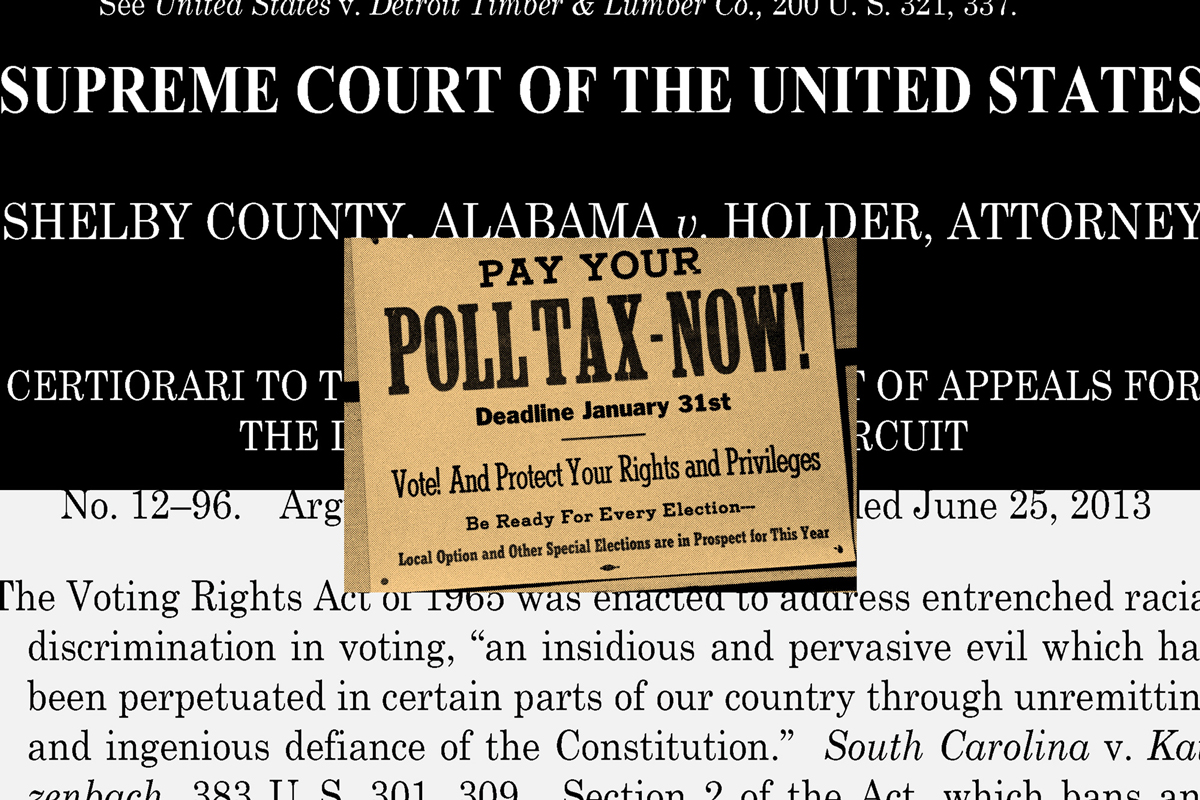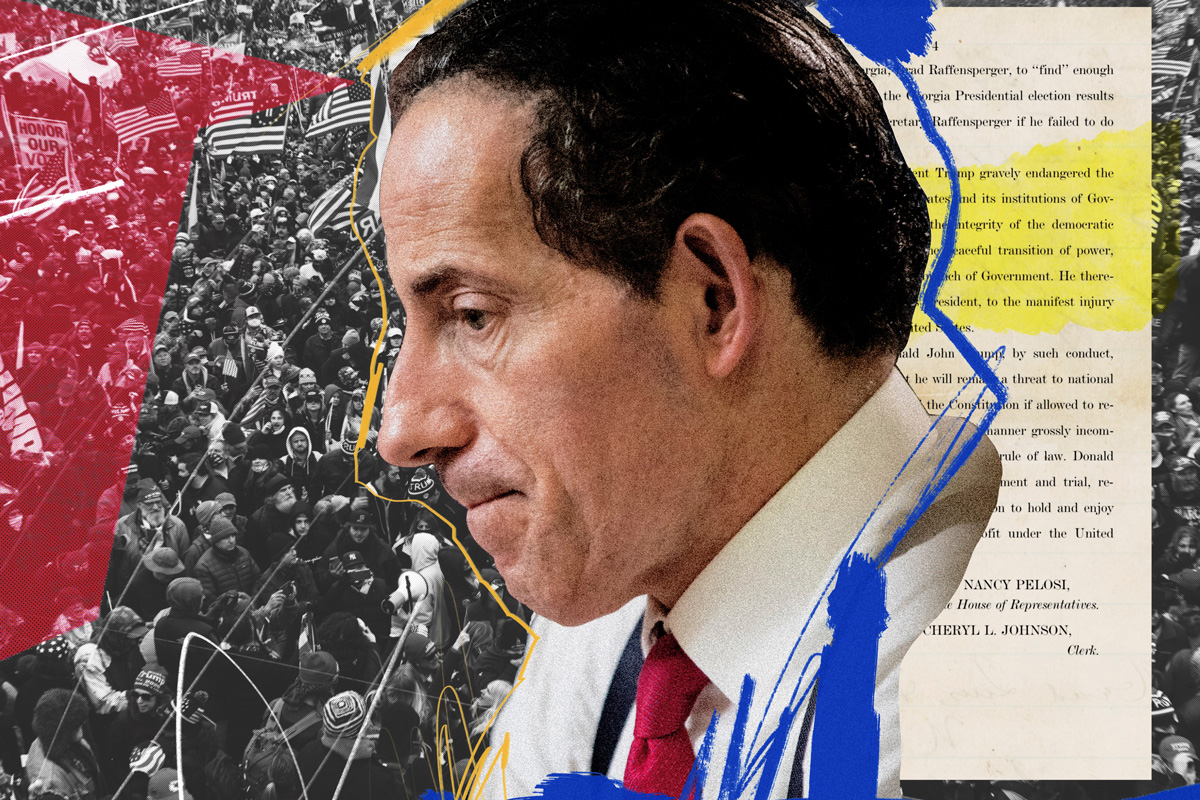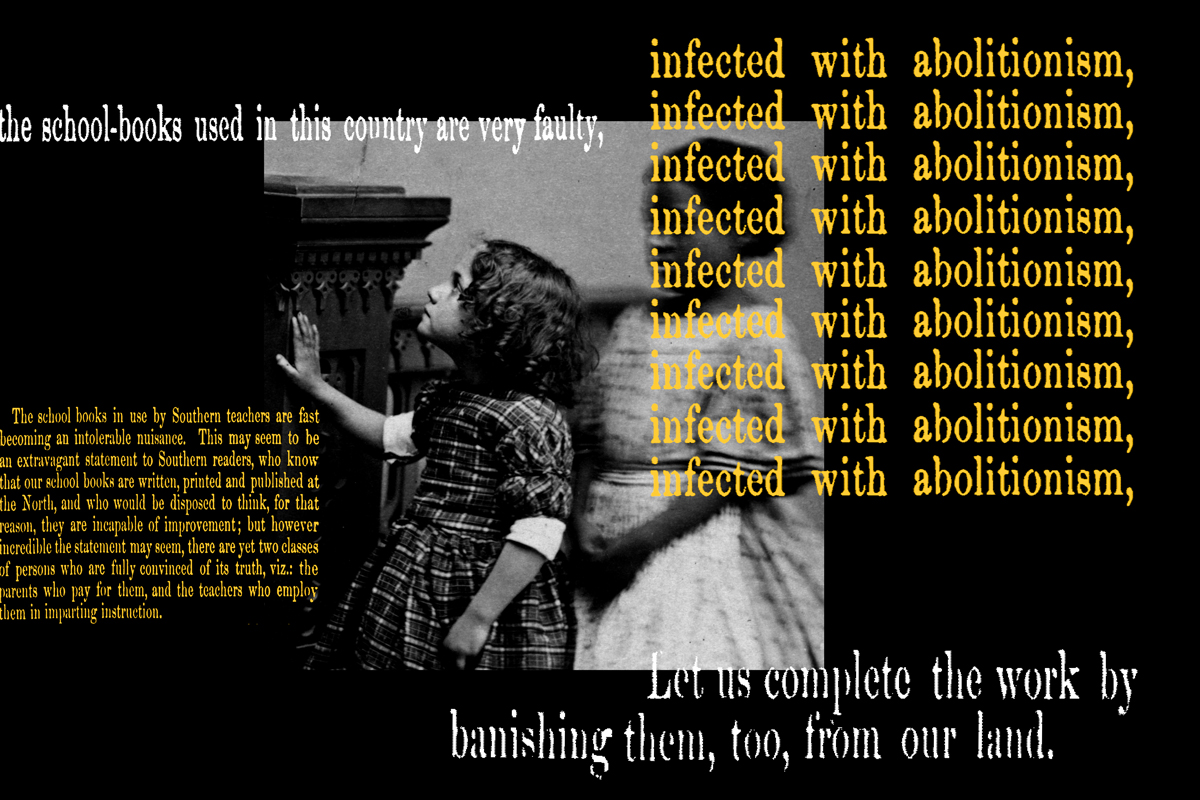With the collapse of critical voting rights legislation in Congress, it’s long past time to own up to a basic and devastating truth: The Republican Party has rewired American democracy into a game it cannot lose. Small wonder that GOP leaders show such little regard for our policy preferences, fundamental rights once considered inalienable, and even basic truths about our history. They draw the districts that determine winners and losers. Voters can do little to change the laws that their own state legislatures pass, and certainly can’t out-vote the finely tuned gerrymanders that entrench these lawmakers in power. The courts one might imagine appealing to for help have instead enabled all this, eviscerating the Voting Rights Act, encouraging these uncontrollable legislatures to further contort and banish the electorate from contests where their full voice isn’t welcome with ever more inventive barriers to the ballot box, and then blessing the partisan gerrymanders that perpetuate this closed circle, our democratic mirage.
Some have compared this recursive antidemocratic retreat to Calvinball, the game with no rules from the Calvin and Hobbes comic. But Calvinball had a much more anarchic spirit and no consistent way to keep score. Our current condition more closely resembles a rigged carnival game: We’re throwing dulled darts at unpoppable balloons, and if by chance one breaks—if Democrats win a key swing-state governorship, or citizens fight to expand democracy via a statewide initiative, or determined Black organizing captures two runoffs and narrowly hands Democrats the U.S. Senate—there’s always a lame-duck power grab, a filibuster, or Supreme Court ruling to explain why the prize isn’t what’s expected. This game has one rule; Republicans rule. They can’t lose.
When Joe Manchin and Kyrsten Sinema—and 50 Republican senators—torpedoed the Freedom To Vote Act and the John Lewis Voting Rights Advancement Act last night, they snuffed out what might be the last opportunity in a generation to level the playing field against decades of efforts by Republicans to remove elections as any check on their power. Taken together, these bills offer a valuable defense against mounting threats, escalating in red-state legislatures nationwide, against a representative, multiracial democracy. They would eliminate the partisan gerrymanders that distort our politics, undo state-level voter subversion laws, establish national standards for voting rights so citizens in Oregon and Oklahoma have the same level of access to the polls. Passage would restore the full protections of the Voting Rights Act, gutted by the Roberts Court in the 2013 Shelby County decision, which unleashed a torrent of new voting restrictions across a South that the chief justice’s ruling blindly and ignorantly insisted had “changed.”
Our democracy has been remade and weakened by the toxic forces unleashed by the one-two punch of Republican gerrymandering and Shelby County. The GOP responded to Barack Obama’s 2008 victory and the emergence of a multiracial Democratic majority with an audacious gerrymandering strategy called REDMAP. This initiative targeted state legislatures ahead of the post-census redistricting. It worked beyond Republicans’ wildest dreams. REDMAP flipped state legislative majorities to Republicans in Michigan, Ohio, Wisconsin, Indiana, North Carolina, Pennsylvania, and Alabama, among others, and also handed complete control over both legislative houses in Florida, Georgia and Texas. With the help of sophisticated new mapping software and terabytes of granular voter data, GOP strategists devised state legislative maps so immune to the popular will that Democrats have not recaptured a single chamber in any of those states since—even when they win hundreds of thousands more votes. Those same legislatures then drew their state’s congressional maps and the results were immediate. In 2012, Barack Obama carried Virginia, Ohio, Florida, Michigan, Wisconsin and Pennsylvania—but Republicans won 64 of the 94 congressional districts they crafted in those states.
This game has one rule; Republicans rule. They can’t lose.
Seven months later, in Shelby County, Roberts declared a bright future of equity across the South and struck down the most crucial enforcement mechanism of the Voting Rights Act as a dusty memento of a bygone time. “Things have changed dramatically,” Roberts wrote as he ended “preclearance”—the practice of requiring required states and localities with a history of racial discrimination in voting laws to have changes to balloting approved by the Justice Department.
Except here’s what had really changed: Between 1965 and 2013, would-be vote suppressors developed more sophisticated techniques as they waited for the chief justice to give them the high sign. They didn’t need poll taxes, literacy tests or threats of violence—not when gerrymandered state legislatures in places like Texas, Florida, and Georgia could use the guise of election security to mandate specific forms of voter ID they already knew large numbers of minority voters lacked. There was no longer any need for blatant efforts of voter disqualification, such as literacy tests asking would-be voters to count the bubbles in a bar of soap. With the blessing of the Shelby decision, states now can simply reduce early voting exactly when Black voters like to head to the polls, purge large numbers of minority voters and call it “voter roll maintenance,” or play bait-and-switch with last-minute closures or relocations of precincts in minority neighborhoods—if, that is, the state in question bothered to open those precincts at all.
“There is no denying,” Roberts wrote, “that the conditions that originally justified these measures no longer characterize voting in the covered jurisdictions.” Yet that very afternoon, Texas immediately enacted a strict and previously disallowed voter ID bill that required a form of identification that 600,000 Latino voters lacked. North Carolina’s legislature studied the exact forms of ID that Black voters were least likely to have, and not only required these credentials to vote but remapped congressional districts with that same information. Voter purges became more determined: Some 32 million voters were taken off the rolls nationwide between 2014 and 2018, and those purges were more aggressive in states with significant nonwhite voting constituencies who had been previously covered by preclearance requirements. Georgia, for example, removed 1.5 million voters between 2012 and 2016, more than twice the number it cut between 2008 and 2012, according to a Brennan Center study.
Then there was chicanery like that pulled by officials in Ridgeland, Mississippi, in the summer of 2020. This suburb of Jackson, about 60 percent white, quietly reorganized—and resegregated local voting precincts months before the 2020 election. More than 2,500 largely Black and Hispanic residents who had long cast ballots at the same neighborhood precinct were shuffled, mostly without notification, to another precinct about 10 minutes away, at a local apartment complex. According to the Mississippi Free Press report, just under 2,500 voters, almost entirely white, still vote at the former site, where there are several hundred parking spots and as many as eight to 10 voting machines.The apartment complex, meanwhile, serves almost 3,700 voters, nearly all of them minorities, with just 25 available parking spaces and five voting machines.
In all, some 25 states have passed voter ID or other restrictions since 2010—adding up to hundreds upon hundreds of pages of targeted suppression efforts, fueled by gerrymandering, freed by Shelby, and inflamed by the Big Lie of non-existent voter fraud. We’re already seeing the impact: In Texas, some counties have rejected as many as 50 percent of absentee ballot applications under tight new restrictions imposed by the state’s new election law. In Atlanta, Georgia, a sharp reduction in the number of dropboxes caused a dramatic reduction of usein the city’s recent mayoral election. Texas, Florida, Kansas, Ohio, Tennessee and Georgia have enacted new potential criminal penalties for those involved in voter registration drives. Under preclearance oversight, very few of these measures would have won passage.
Today’s voter suppression is narrow and targeted. It gerrymanders state legislatures into oblivion for a decade—and for good measure lawmakers and politicos on the right have proceeded to redraw districts in Texas and Arizona for another 10 years as demographic changes looked like they might start to threaten Republican legislative power. When citizens protest the gerrymanders, the Roberts Court shutters the federal courts to their claims and tells them to go win elections they cannot win. You can’t out-litigate it, out-organize it, out-vote it, or out-gerrymander it.
Then those legislatures carefully raise just enough barriers to advantage themselves in closely contested statewide races, like Georgia and Arizona, where less than 10,500 and 11,800 votes, respectively, decided 2020’s presidential balloting. In races this tight, you don’t need to suppress everyone. You just have to make it inconvenient or difficult enough to diminish the number of voters unlikely to support your side. In Georgia, voters wait an average of just six minutes in line after 7 p.m. in precincts where 90 percent of residents are white. But when 90 percent of voters are Black? The wait soars to 51 minutes. Between 2012 and 2018, Georgia shuttered 8 percent of all precincts statewide, and moved 40 percent of them. According to a study by the Atlanta Journal-Constitution, the combination of fewer precincts and longer commutes could have kept as many as 85,000 people from casting a ballot in 2018. That’s nearly twice the number of votes that separated Brian Kemp and Stacey Abrams in the state’s gubernatorial race. This pattern of obstruction clearly and disproportionately burdened Black voters, who were 20 percent less likely to make it to the polls as a result.
Arizona, liberated from preclearance requirements post-Shelby, responded with laws that allowed the state to reject any vote cast in the wrong precinct, and also made it a felony for anyone other than a family member or election official to collect or return a ballot. Studies showed that minority voters were more likely to have their precincts moved arbitrarily and more than twice as likely to cast an out of precinct ballot than white voters. “The paths to polling places,” one judge wrote, are “much like the changing stairways at Hogwarts, constantly moving and sending everyone to the wrong place.” Native Americans and rural Arizonans, meanwhile, without reliable mail service, relied on help to get their ballots collected. Less ideological judges had no trouble seeing the racist intent; courts found that the law was based on “false and race-based allegations” of non-existent fraud, that even if legislators believed existed, made them “cats’ paws” manipulated by those with “discriminatory intent.” The Roberts Court responded in 2021, however, by upholding the laws and narrowing Section Two of the Voting Rights Act, merrily legislating from the bench. It’s not just voting, of course. The same states making it more difficult to vote, erasing the substance of the civil rights revolution, are also banning the truthful telling of American history, even the words of Dr. Martin Luther King Jr. The hermetically sealed doom loop fastens itself ever tighter around our body politic.
The kind of dramatic reform we need has been stalled by the broken institutions that make it necessary.
A Supreme Court of robed ideologues, with a conservative majority nominated by presidents who lost the popular vote and a Senate that lacks national popular legitimacy, answerable to no one, responsive only to Fox News talking points, makes its own rules as it goes along, substituting its judgment for that of Congress. State legislatures no longer resemble democracy in North Carolina, Wisconsin and Ohio and have been placed beyond the reach of voters in Florida, Texas and Pennsylvania. Upward of 80 percent of state legislative races in Georgia are so hardwired for conservative incumbency that they have recently failed to attract any major-party competitors at all.
Even when Democrats cobble together weak majorities in Washington, the filibuster renders the U.S. Senate worthless. We are under siege from within, on the verge of state legislative sessions likely to contain bills that could render democracy unrecognizable, perhaps an election away from checkmate. The kind of dramatic reform we need has been stalled by the broken institutions that make it necessary. We need important fixes to repair institutions that baked anti-democratic functions into them from the beginning of the nation. Inaction is no longer an option. Yet action appears impossible. Republicans could win the 2022 and 2024 elections legitimately. If so, they could nationalize the kind of targeted suppression efforts seen in Texas, Georgia and Florida. Or they could lose the White House and fight to stay there anywhere—enabled by gerrymandered legislatures and judicial supplicants willing to interpret any law to meet the predetermined outcome of heads they win, and tails we lose.
It is not too late to pull back from the abyss. We can undertake mass-political campaigns to reimagine the U.S. Senate, and expand representation by adding states to the union, starting with the District of Columbia and Puerto Rico. We can start experimenting with reforms to rein in the unchecked powers of the Supreme Court to dictate the basic terms of political engagement in the United States. And we can counter the fiercely undemocratic institutions of the U.S. House and the Electoral College with models of districting and balloting based on proportional representation—the building block of fair and equitable representation in most other Western democracies. To many commentators and institutional forces invested in the failing status quo, these seem like wild-eyed and quasi-utopian proposals. But thanks to Krysten Sinema, Joe Manchin—and a vast and influential corps of antidemocratic ideologues on the right—yesterday’s utopian reveries are today’s pragmatic playbooks for democratic self-preservation. The only way to make American democracy viable again is to re-envision it from the ground up.
David Daley is the author of Ratf**ked: Why Your Vote Doesn't Count and Unrigged: How Americans Are Battling Back to Save Democracy.



